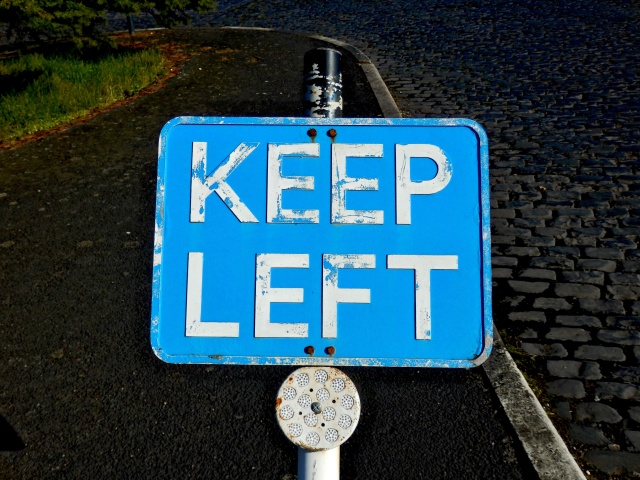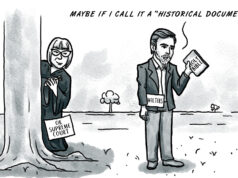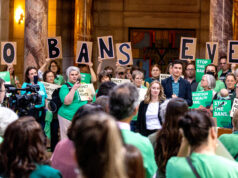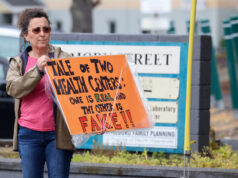I don’t know exactly when I determined I was a Democrat. I was raised in a house divided. My father is a staunch liberal, and my mother is decidedly conservative. She raised us to be religious, and I grew up constantly surrounded by my church family. They became the biggest influence in my life, the people I respected and admired most.
I loved my dad, but politics was an area where I thought he was just wrong. Like most kids, I knew nothing about politics. I liked to pretend I knew a lot, though, as I did with most subjects. I remember deciding Republicans had to be the superior party because Bill Clinton had an affair, and he was a Democrat. Therefore, all Democrats lacked morals.
Sadly, I did not mature much in my logical reasoning over the next 10 years. I went through the typical early-20s crisis of questioning everything I’d ever believed. Eventually, I left behind the ultra-conservative, Jesus-praising, Oklahoma-born-and-bred boy I had always been and became a faithless wanderer who secretly relished my rebelliousness. I was now that person I had always pitied and simultaneously judged, the kind of person who thought religion is a load of crap so I’m going to do whatever the hell I want.
Today, I continue to have a back-and-forth struggle with faith, but I can gladly say I’ve landed somewhere between the two extremes.
When I was about 23 years old, I went to renew my driver’s license. After some internal debating, I decided to keep my voter registration Republican. Within six months, I went back to change it. My views slowly began to shift. Really, I should say, they formed for the first time: I was no longer absorbing the beliefs of those around me.
Rather than go into detail about how I formed opinions on each political issue, I’d like to use this opportunity to address one source of frustration for me. The close association of conservatism with Christianity continuously perplexes me. In general, Republicans mostly oppose homosexuality and abortion. Despite anyone’s personal belief on either issue, I think most people understand how Christians might form these viewpoints when reading the Bible; however, I would argue that the manner in which Republicans have displayed their opposition to these matters is the antithesis of Christ-like.
I can’t imagine Jesus using laws to force people to abide by his spiritual beliefs. Jesus looked at an adulteress woman and had mercy on her. He told those condemning her to cast a stone only if they themselves were without sin. He didn’t say she had to stop being sexually promiscuous because he thought it was shameful. On legalizing gay marriage, I have no idea what Jesus would do, but it is hard to believe he would alienate homosexuals the way many conservatives have. I also have to think if Jesus hated abortion, he would at the very least have empathy for women who are forced to make that decision. I don’t see him vilifying them and calling them baby killers.
If Christians feel it is their right to govern every individual citizen based on their personal moral code, will they start fighting for all sins to be illegal? Will all sex outside the confines of marriage be persecuted? Will gossipers be held accountable for their evil deeds? Will divorcees be prevented from remarrying?
Other than homosexuality and abortion, I would ask Republicans what other of their political stances connect to Christianity? I like to think I belong to a political party that possesses Christian ideals. A party concerned with “the least of these,” which looks at families in endless cycles of poverty and thinks we could and should help them. When I see families mourning loved ones lost from mass shootings almost weekly, my first thought is never, “Well, no one is taking my guns away!” When people are desperate for a better life and fleeing their own country to find it, I want to welcome them and offer the same safety and freedom I value so greatly.
I realize some arguments I’ve made here are oversimplified, but I hope I have represented some points of view not often discussed. I do not expect this commentary will change anyone’s mind, but I’ll consider it a huge success if it spawns one civil conversation between a conservative and a progressive.
If not, I’m still grateful for the opportunity to write this piece, and I wish everyone a happy election year.






















